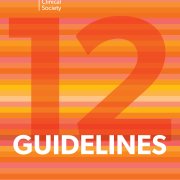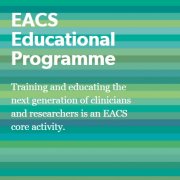Information about Mpox in Europe
ECDC/EACS 18th Mpox webinar, 2 May 2023
- ECDC/EACS 17th Mpox webinar, 6 December 2022
-
ECDC/EACS 17th Mpox webinar, 6 December 2022
- Mopox & HIV Co-infection Data Dashboard
-

Mopox & HIV Co-infection Data Dashboard
We are pleased to announce that the NEAT ID Foundation, in partnership with the European AIDS Clinical Society (EACS), has developed another simple Data “Dashboard” to monitor the progress of the Monkeypox Virus in people living with HIV across Europe and the world and invite you to contribute to this initiative.
This Dashboard will show by Country and Region level the number of cases reported to NEAT ID with Mpox co-infection with HIV, the number of hospitalisations and any reported deaths.
The data will be available for public viewing via www.NEAT-ID.org.
To take part please click here.
Please indicate your Name, Email, Site Name, City, and Country. We will respond with your individual Site login details within 24 hours.
- EACS Statement on Mpox in Europe
-

Mpox in Europe
EACS Statement
Friday, 20 May 2022
UK, Spain and Portugal are reporting cases of mpox amongst, but not exclusively, men who have sex with men (MSM). Isolated confirmed cases, or cases under investigation are being reported from Sweden, Italy, Belgium, USA and Canada. Many of these cases are unlinked to travel to endemic areas in West/Central Africa, and it is increasingly likely that there is local transmission amongst communities in these areas.
Mpox is a zoonotic orthopoxvirus with signs and symptoms similar to smallpox, but with a lower mortality. Whilst it primarily occurs in West and Central Africa, there have been reported cases linked to travel and import of animal reservoirs in recent years. The cases being reported currently are of the West African clade of mpox that is associated with a lower mortality of approximately 1%. It appears that there are likely chains of transmission amongst GBMSM associated with intimate contact.
The symptoms of mpox begin 5-21 days (average 6-16 days) after exposure, with an initial illness of fever, malaise, lymphadenopathy and headache. Atypical symptoms, for example, an absence of fever may occur. Within 1-5 days after the initial symptoms, a rash develops, often beginning in the face or the genital area and then spreading to the other parts of the body, particularly arms and legs. The rash evolves slowly from a macule to a vesicular papule that umbilicates, and may ulcerate before it eventually scabs over. The rash may be mistaken for primary VZV infection, disseminated gonococcus, chancre or HSV.
Infection can be spread by direct contact with monkeypox skin lesions or scabs, contact with contaminated clothing or linens or via droplet transmission. It is unclear whether sexual transmission may be also contributing.
There is little data currently to gauge the impact of HIV on morbidity and mortality associated with mpox. It is likely that persons with advanced and uncontrolled HIV may be at a higher risk of severe disease and prolonged viral shedding.
Whilst treatment is mostly supportive, a number of antivirals including Cidofovir, Brincidofovir and Tecovirimat may have activity against mpox virus.
The Liverpool HIV drug-interactions website now includes the important DDIs with ART for each of these drugs.
Smallpox vaccines may be effective in providing protection against monkeypox. The Imvanex vaccine (Bavarian Nordic) is a non-replicating vaccina vaccine that is approved for use in Europe, and is safe to use in people living with HIV, although vaccine response in those with uncontrolled viraemia, or CD4 <100 have not been established.
A number of these patients may present to their local sexual health, dermatology, infectious diseases and HIV clinics. Maintain an index of suspicion, test according to national guidelines and isolate suspected cases appropriately with appropriate contact and airborne transmission isolation. The infectious period starts from onset of symptoms and lasts till the scabs have fallen off.

Source: https://www.gov.uk/guidance/monkeypox
Some Useful References
- https://www.gov.uk/government/news/monkeypox-cases-confirmed-in-england-latest-updates
- https://www.gov.uk/guidance/monkeypox
- Yinka-Ogunleye A et al; Lancet Infect Dis. 2019 Aug;19(8):872-879.
- Ogoina D et al. Clin Infect Dis. 2020 Nov 5;71(8):e210-e214.
- Huhn GD et al. Clin Infect Dis. 2005 Dec 15;41(12):1742-51.
- Heymann DL, Szczeniowski M, Esteves K. Re-emergence of monkeypox in Africa: a review of the past six years. British Medical Bulletin. 1998; 54(3):693–702.
- https://www.ema.europa.eu/en/documents/product-information/imvanex-epar-product-information_en.pdf
- https://www.hiv-druginteractions.org/checker

20th European AIDS Conference
15-18 October 2025 Paris, France

EACS Guidelines updated
The EACS 12.0 and the app are available for free on

Educational Programme
Training and educating the next generation of clinicians and researchers is an EACS core activity.

EACS Resource Library
Access all scientific content of EACS core activities! (members only)